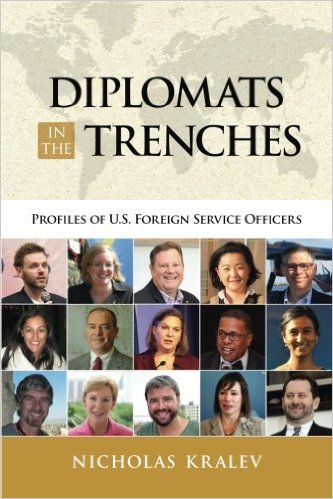Diplomats in the Trenches: Profiles of U.S. Foreign Service Officers
 Most Americans, like ordinary people everywhere, don’t relate to diplomacy — to the extent they think about it at all, they view it as something that happens in a stratosphere of officialdom, far out of their reach. They also believe that it has little to do with their lives.
Most Americans, like ordinary people everywhere, don’t relate to diplomacy — to the extent they think about it at all, they view it as something that happens in a stratosphere of officialdom, far out of their reach. They also believe that it has little to do with their lives.
I reached this conclusion after more than a decade of research focused on the practice, impact and perceptions of diplomacy in the 21st century, conducted in dozens of countries. My second conclusion, having to do with reality, is markedly different from the first, which is about perception. Despite the oddity and impracticality of the diplomatic protocol, etiquette and grandstanding, the substance of diplomacy does have a direct impact on the lives of real people.
By “real people” I mean all of us, as we go about our business and deal with normal everyday things, hoping for the safety and well-being that can help us lead a decent life and fulfill our potential.
We live in a globalized and interconnected world, and whether we realize it or not, we are affected by events, forces, trends and people far beyond our national borders. What happens in other countries, and how our diplomats deal with it, has an impact on our security, prosperity, health, privacy, ability to travel and much more…
